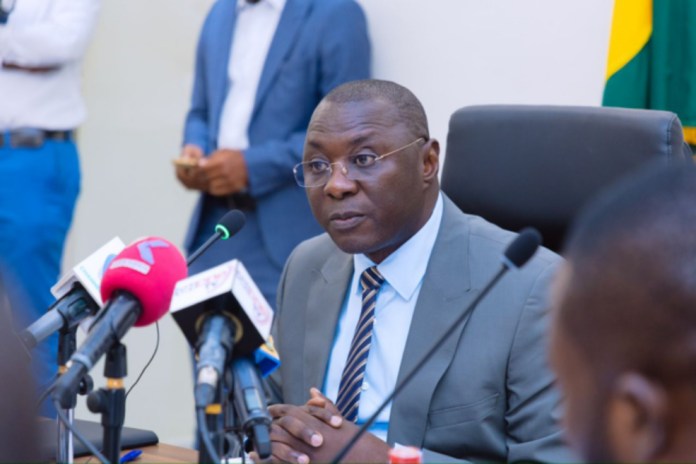By: Kekeli K. Blamey
Ghana’s government has officially requested modifications to the International Monetary Fund (IMF)-supported Extended Credit Facility (ECF) programme.
The requested changes aim to reflect the country’s shifting macroeconomic conditions and align the program with Ghana’s fiscal realities.
The modifications include adjustments to key performance criteria and indicative targets for the period ending June 2025. Specifically, the primary balance and non-oil revenue targets will be revised to accommodate higher nominal GDP projections while maintaining fiscal effort relative to GDP.
Additionally, the targets for net international reserves for March and June 2025 will be lowered to account for updated foreign exchange cash flow projections. The Monetary Policy Consultation Clause bands through mid-2025 will also be adjusted upwards to reflect recent macroeconomic trends on expected inflation trajectories.
Finance Minister Dr. Mohammed Amin Adam and Governor of the Bank of Ghana, Dr. Ernest Addison, emphasized the importance of these adjustments in a joint letter to the IMF. They noted that the modifications reflect macroeconomic developments while maintaining the integrity of the program.
Ghana has made significant progress under the IMF program, meeting all end-June 2024 quantitative performance criteria and indicative targets. Inflation rates have declined faster than anticipated, and the government achieved a significant reduction in the fiscal deficit.
The country has also made notable efforts in addressing its debt burden, completing the domestic debt restructuring process in 2023 and advancing external debt restructuring efforts. The updated request to the IMF includes adjustments to the NIR floor to accommodate large payments associated with this restructuring.
The government has reaffirmed its commitment to the program, which is monitored through semi-annual reviews. It includes continuous performance criteria related to exchange restrictions and reforms under IMF Article VIII. The government has committed to consulting with the IMF before adopting further measures and ensuring timely implementation of agreed actions.
Dr. Adam and Dr. Addison expressed optimism about the program’s trajectory, stating: “We remain committed to working closely with the IMF to ensure the program’s success and to provide the necessary information for monitoring progress.”






